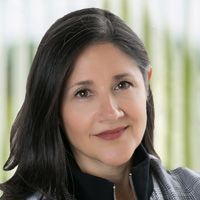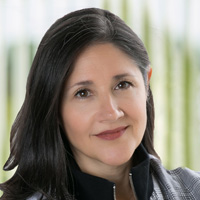5 Tips to Make Your Year-End Giving Go Further
Here are a few ideas on how to help maximize the feel-good effects that your charitable contributions can deliver this year.


Profit and prosper with the best of Kiplinger's advice on investing, taxes, retirement, personal finance and much more. Delivered daily. Enter your email in the box and click Sign Me Up.
You are now subscribed
Your newsletter sign-up was successful
Want to add more newsletters?

Delivered daily
Kiplinger Today
Profit and prosper with the best of Kiplinger's advice on investing, taxes, retirement, personal finance and much more delivered daily. Smart money moves start here.

Sent five days a week
Kiplinger A Step Ahead
Get practical help to make better financial decisions in your everyday life, from spending to savings on top deals.

Delivered daily
Kiplinger Closing Bell
Get today's biggest financial and investing headlines delivered to your inbox every day the U.S. stock market is open.

Sent twice a week
Kiplinger Adviser Intel
Financial pros across the country share best practices and fresh tactics to preserve and grow your wealth.

Delivered weekly
Kiplinger Tax Tips
Trim your federal and state tax bills with practical tax-planning and tax-cutting strategies.

Sent twice a week
Kiplinger Retirement Tips
Your twice-a-week guide to planning and enjoying a financially secure and richly rewarding retirement

Sent bimonthly.
Kiplinger Adviser Angle
Insights for advisers, wealth managers and other financial professionals.

Sent twice a week
Kiplinger Investing Weekly
Your twice-a-week roundup of promising stocks, funds, companies and industries you should consider, ones you should avoid, and why.

Sent weekly for six weeks
Kiplinger Invest for Retirement
Your step-by-step six-part series on how to invest for retirement, from devising a successful strategy to exactly which investments to choose.
Giving to charity is now easier than ever – especially during the holidays. Whether writing a check, opting to “round up” at the register, or simply clicking a “donate” button, you can quickly make a donation and be on your way. But after a few minutes, that good-deed feeling fades, and you may be left wondering if your contribution made a significant impact. What if you could make your giving reach more people this year?
Here are five tips to maximize your giving, just in time for the holidays.
1. Find matching opportunities.
Many charities have annual fundraising campaigns with mega donors who match contributions — sometimes as much as 3:1 — received during specified timeframes. Check to see if your favorite causes have similar opportunities that could double or even triple your impact, and help the organizations reach their goals.
From just $107.88 $24.99 for Kiplinger Personal Finance
Become a smarter, better informed investor. Subscribe from just $107.88 $24.99, plus get up to 4 Special Issues

Sign up for Kiplinger’s Free Newsletters
Profit and prosper with the best of expert advice on investing, taxes, retirement, personal finance and more - straight to your e-mail.
Profit and prosper with the best of expert advice - straight to your e-mail.
Employers often offer matching programs, too, which can make a big difference to nonprofits. You can even start a program in which you supply the funds for a future matching challenge.
2. Make it a family affair.
The holidays offer a rare opportunity to get the whole family together, and it’s the perfect time to get your kids and grandkids involved in giving. One idea is to create a “giving budget” to donate to charity. Each child then suggests a cause to help everyone decide where and how to distribute the “budget.” Actual dollars can then be given for the holidays — and even matched by grown-ups. The possibilities are limitless.
Looking for more family-friendly giving ideas? Foundation Source’s The Secret to Joyful Giving guide can help.
3. Formalize your giving.
If you don’t have a charitable vehicle but have been giving consistently and expect to give more in the future, several options are available to ensure your gifts are more organized, strategic and tax efficient. You can diversify and expand your giving with vehicles like a private foundation or a donor-advised fund that will earmark assets for charitable purposes and potentially provide meaningful tax benefits.
Private foundations offer flexibility, control and other unique advantages that support creative and entrepreneurial philanthropy. Donor-advised funds provide advantages like anonymity and higher tax deductions. You can also incorporate your philanthropic objectives into your will or estate plan and explore planned giving and trusts.
4. Don’t forget Uncle Sam.
Coordinating your charitable contributions with your tax strategy, estate planning and investment management could result in better outcomes — across all disciplines — and ensure that you get beneficial tax deductions, which in turn allows you to give more. With charitable vehicles like private foundations and donor-advised funds, you can maximize your tax savings and may be able to claim a same-year tax deduction.
5. Know your minimums.
If you have a charitable vehicle with a minimum distribution requirement, make sure you know what it is and how much you have left to disburse so your assets are used for charitable purposes and not penalties. For example, private foundations are required to annually distribute at least 5% of the previous year’s average net assets.
Qualifying distributions from the foundation include grants to public charities, administrative expenses and certain costs related to carrying out the foundation’s charitable purpose, such as a building, computers and office furniture.
©2021 Foundation Source Philanthropic Services, Inc. All rights reserved.
Profit and prosper with the best of Kiplinger's advice on investing, taxes, retirement, personal finance and much more. Delivered daily. Enter your email in the box and click Sign Me Up.

Hannah Shaw Grove is the chief marketing officer of Foundation Source, founder of "Private Wealth" magazine and author of 11 data-based books and hundreds of reports and articles on topics relating to the creation, management, disposition and transfer of wealth. Hannah has previously been the chief marketing officer at Apex Clearing, iCapital Network and Merrill Lynch Investment Managers and is a cum laude graduate of Harvard University. She holds the FINRA Series 6, 7, 24, 26 and 63 licenses.
-
 Dow Leads in Mixed Session on Amgen Earnings: Stock Market Today
Dow Leads in Mixed Session on Amgen Earnings: Stock Market TodayThe rest of Wall Street struggled as Advanced Micro Devices earnings caused a chip-stock sell-off.
-
 How to Watch the 2026 Winter Olympics Without Overpaying
How to Watch the 2026 Winter Olympics Without OverpayingHere’s how to stream the 2026 Winter Olympics live, including low-cost viewing options, Peacock access and ways to catch your favorite athletes and events from anywhere.
-
 Here’s How to Stream the Super Bowl for Less
Here’s How to Stream the Super Bowl for LessWe'll show you the least expensive ways to stream football's biggest event.
-
 How to Add a Pet Trust to Your Estate Plan: Don't Leave Your Best Friend to Chance
How to Add a Pet Trust to Your Estate Plan: Don't Leave Your Best Friend to ChanceAdding a pet trust to your estate plan can ensure your pets are properly looked after when you're no longer able to care for them. This is how to go about it.
-
 Want to Avoid Leaving Chaos in Your Wake? Don't Leave Behind an Outdated Estate Plan
Want to Avoid Leaving Chaos in Your Wake? Don't Leave Behind an Outdated Estate PlanAn outdated or incomplete estate plan could cause confusion for those handling your affairs at a difficult time. This guide highlights what to update and when.
-
 I'm a Financial Adviser: This Is Why I Became an Advocate for Fee-Only Financial Advice
I'm a Financial Adviser: This Is Why I Became an Advocate for Fee-Only Financial AdviceCan financial advisers who earn commissions on product sales give clients the best advice? For one professional, changing track was the clear choice.
-
 I Met With 100-Plus Advisers to Develop This Road Map for Adopting AI
I Met With 100-Plus Advisers to Develop This Road Map for Adopting AIFor financial advisers eager to embrace AI but unsure where to start, this road map will help you integrate the right tools and safeguards into your work.
-
 The Referral Revolution: How to Grow Your Business With Trust
The Referral Revolution: How to Grow Your Business With TrustYou can attract ideal clients by focusing on value and leveraging your current relationships to create a referral-based practice.
-
 This Is How You Can Land a Job You'll Love
This Is How You Can Land a Job You'll Love"Work How You Are Wired" leads job seekers on a journey of self-discovery that could help them snag the job of their dreams.
-
 65 or Older? Cut Your Tax Bill Before the Clock Runs Out
65 or Older? Cut Your Tax Bill Before the Clock Runs OutThanks to the OBBBA, you may be able to trim your tax bill by as much as $14,000. But you'll need to act soon, as not all of the provisions are permanent.
-
 The Key to a Successful Transition When Selling Your Business: Start the Process Sooner Than You Think You Need To
The Key to a Successful Transition When Selling Your Business: Start the Process Sooner Than You Think You Need ToWay before selling your business, you can align tax strategy, estate planning, family priorities and investment decisions to create flexibility.